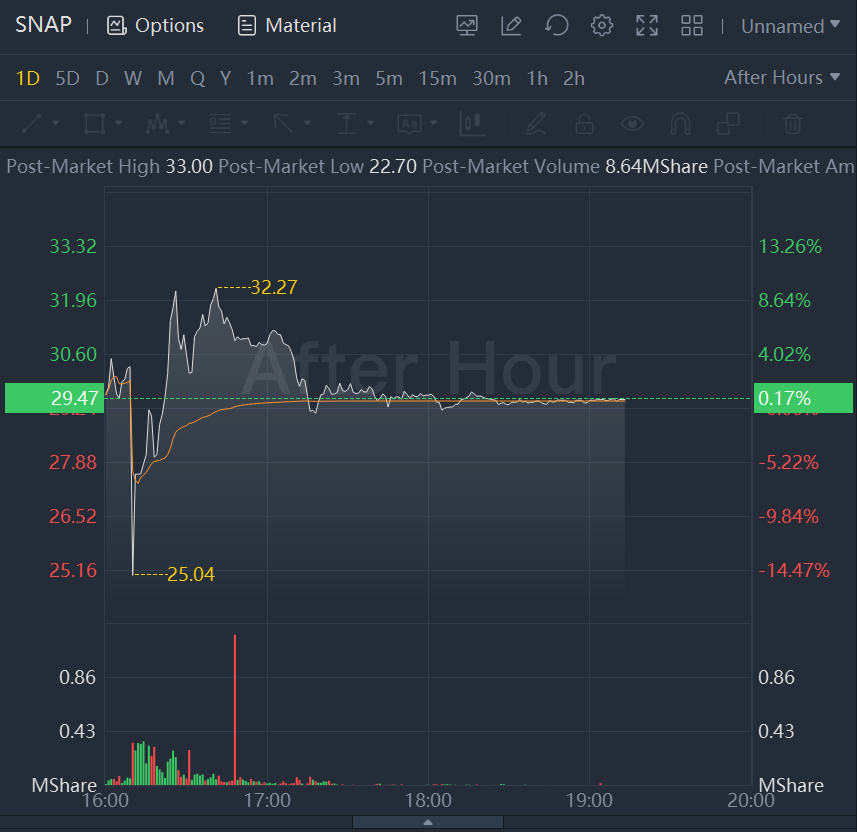Snap Inc. reported first-quarter results that highlighted how the company is feeling the sting from disruptions in the digital ad market, including the impact of rising inflation on advertisers and privacy policy changes Apple Inc. implemented last spring.
The Santa Monica, Calif., company on Thursday posted sales that narrowly fell short of its forecast and a loss that was wider than Wall Street expected. It issued what it described as a conservative outlook for sales growth in the current quarter that came in shy of estimates as it worried about further setbacks in the ad market.
Chief Executive Evan Spiegel called the quarter "more challenging than we had expected."
Snap is one of the first tech companies with sales focused on the digital ad market to report results for the January through March period. Facebook parent Meta Platforms Inc., Twitter Inc. and Alphabet Inc. all report quarterly results next week.
Snap, which logged its first-ever quarterly profit in the fourth quarter, reported a net loss of $360 million for the first three months of this year, including a $92 million unrealized loss on an investment. Sales jumped 38% from a year earlier the year-ago periodto $1.06 billion.
Snap shares, which closed down 4.4% Thursday before the results, were mixed in after-hours trading.
The company also signaled sales growth this quarter could surpass its forecast.
For the current quarter, sales have seen growth so far of around 30%, Chief Financial Officer Derek Andersen saidin prepared remarks, slightly ahead of the 20% to 25% guidance the company is giving for the period.
"We are concerned that the operating environment ahead could be even more challenging, leading to further campaign pauses or advertiser budget reductions," he said.
Russia's assault on Ukraine that began Feb. 24 also had an impact on its business, Snap said.
Some advertisers paused spending after Russia's offensive began, though resumed spending within 10 days, the company said.
Snap also said it incurred about $5 million in costs for efforts to support team members affected by the war.
"Our brand advertising business grew at a relatively slower rate," Mr. Andersen said.
He added that advertisers across numerous industries have expressed concerns about everything from rising costs and interest rates to supply- chain disruptions.
Digital ad sales at Snap and other companies were hit after Apple introduced software changes last year that started requiring apps to ask users whether they wanted to be tracked.
Many users opted out, making it more difficult for advertisers to target their ads to specific demographic groups and limiting their ability to determine whether ad campaigns were working.
Snap last year warned revenue growth would slow as a result, sending its shares tumbling. Shares in Snap are down about 50% over the past year.
The company said it has been developing new tools to help advertisers resolve those issues and is nowfocused on persuading convincing brands to use them.
Snap increased boosted its number of daily active users to 332 million in the first quarter, up 18% from the year-ago period and slightly ahead of expectations.
The company plans to host its annual partner summit next week where it said it plans to unveil new products and features.

